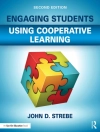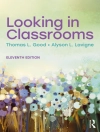In Fragile Kinships , Kathryn E. Goldfarb shows how child welfare systems do not always generate well-being. This is true across the world, as it is in Japan. Policymakers, caregivers, and people with experience in state care endeavor to imagine—and implement—child welfare systems that are genuinely supportive. Yet despite these efforts, social welfare systems too often produce people who are alone. By centering relationality in theorizing social forms of care, Fragile Kinsh...
विषयसूची
Producing People who have No One
Kinship Technologies
Approximating a Household
Normal Aspirations
Materializing Relationships
The Politics of Chance
Knowledge and Narration
Conclusion
लेखक के बारे में
Kathryn E. Goldfarb is a cultural and medical anthropologist. Her research focuses on the ways social relationships shape embodied experience, intersections between...












